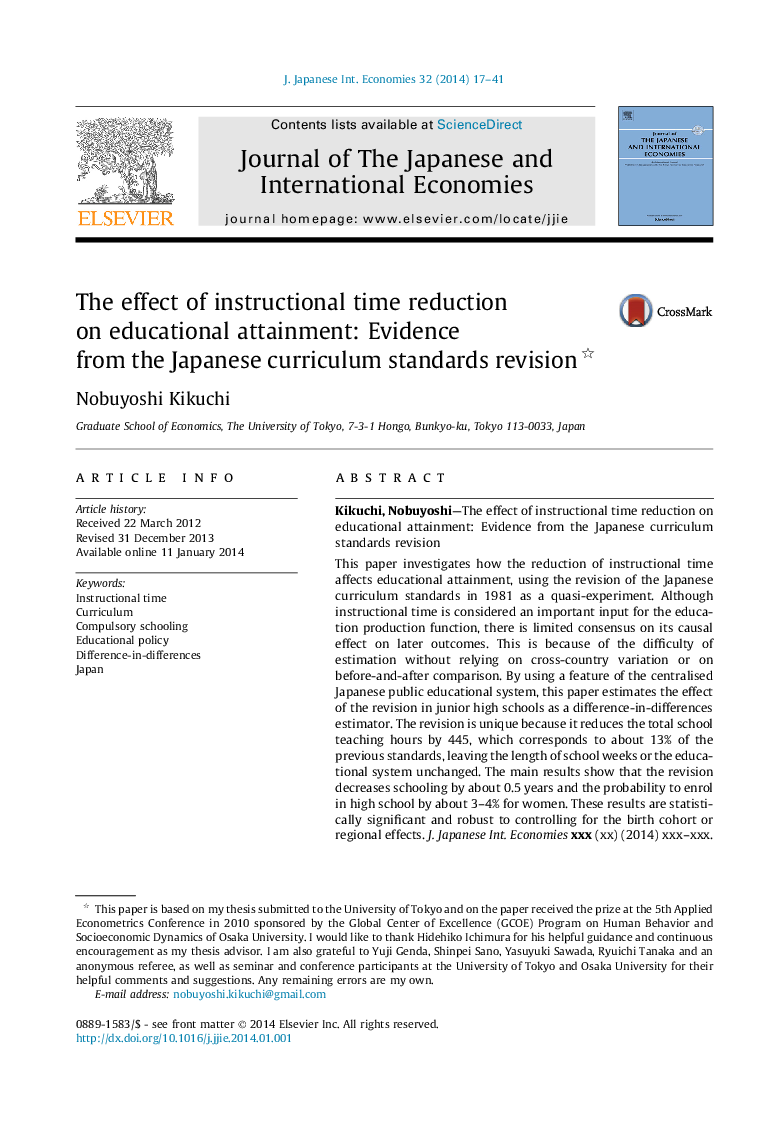| Article ID | Journal | Published Year | Pages | File Type |
|---|---|---|---|---|
| 964905 | Journal of the Japanese and International Economies | 2014 | 25 Pages |
•I examine how a reduction of instructional time affects educational attainment.•I use the Japanese curriculum standards revision in 1981 as a quasi-experiment.•The revision reduced the total school hours in public junior high schools.•The revision decreases years of schooling by about 0.5 years for women.•The revision lowers the probability to enrol in high school by about 3–4%.
This paper investigates how the reduction of instructional time affects educational attainment, using the revision of the Japanese curriculum standards in 1981 as a quasi-experiment. Although instructional time is considered an important input for the education production function, there is limited consensus on its causal effect on later outcomes. This is because of the difficulty of estimation without relying on cross-country variation or on before-and-after comparison. By using a feature of the centralised Japanese public educational system, this paper estimates the effect of the revision in junior high schools as a difference-in-differences estimator. The revision is unique because it reduces the total school teaching hours by 445, which corresponds to about 13% of the previous standards, leaving the length of school weeks or the educational system unchanged. The main results show that the revision decreases schooling by about 0.5 years and the probability to enrol in high school by about 3–4% for women. These results are statistically significant and robust to controlling for the birth cohort or regional effects.
